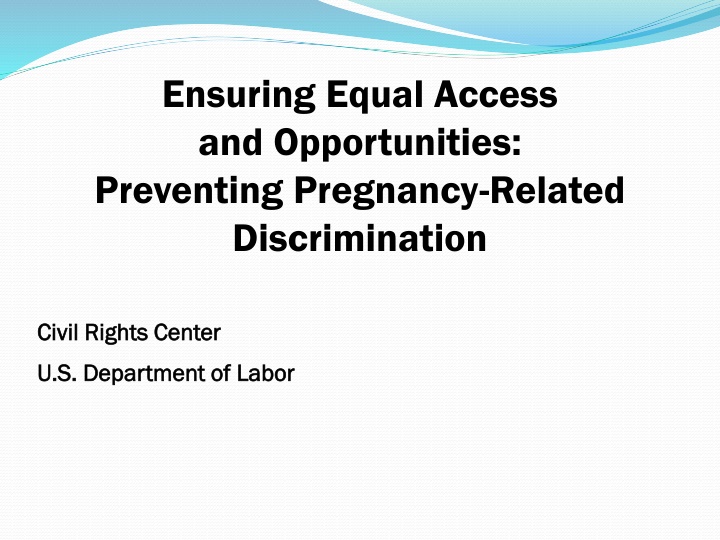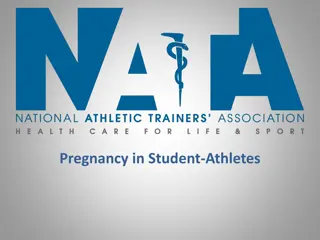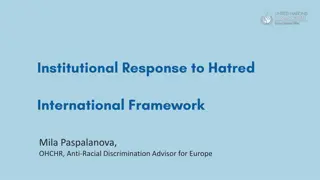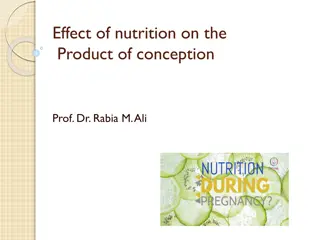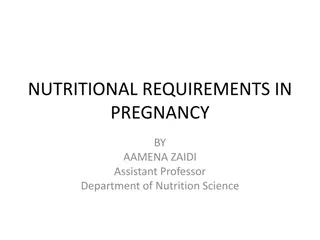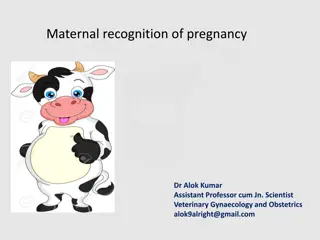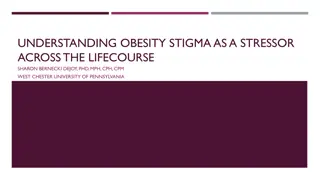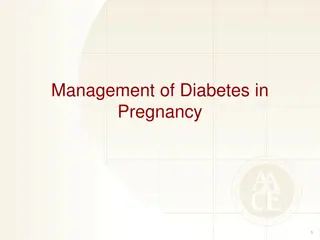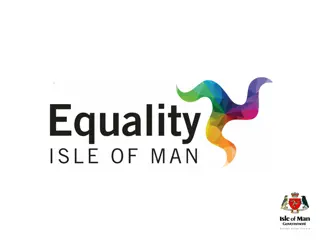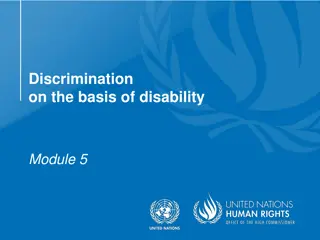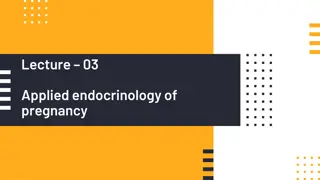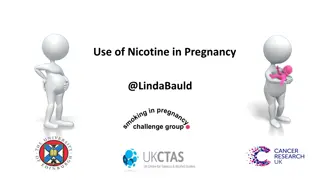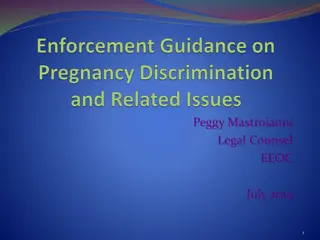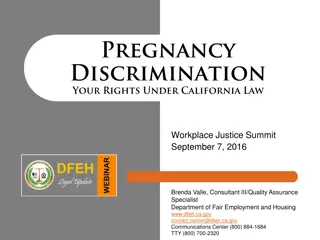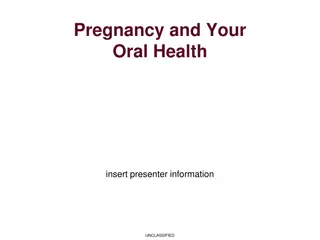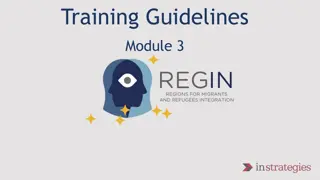Preventing Pregnancy-Related Discrimination in Access and Opportunities
This content discusses the importance of preventing pregnancy-related discrimination in access and opportunities, covering relevant laws such as Title IX of the Education Amendments Act of 1972 and Title VII of the Civil Rights Act of 1964. It provides examples of pregnancy discrimination, ways to prevent it, and highlights key provisions to ensure equal access for individuals. The focus is on fostering a work environment free from discrimination based on sex, including pregnancy, and promoting fairness in educational programs and employment practices.
Download Presentation

Please find below an Image/Link to download the presentation.
The content on the website is provided AS IS for your information and personal use only. It may not be sold, licensed, or shared on other websites without obtaining consent from the author.If you encounter any issues during the download, it is possible that the publisher has removed the file from their server.
You are allowed to download the files provided on this website for personal or commercial use, subject to the condition that they are used lawfully. All files are the property of their respective owners.
The content on the website is provided AS IS for your information and personal use only. It may not be sold, licensed, or shared on other websites without obtaining consent from the author.
E N D
Presentation Transcript
Ensuring Equal Access and Opportunities: Preventing Pregnancy-Related Discrimination Civil Rights Center Civil Rights Center U.S. Department of Labor U.S. Department of Labor
Road Map for Todays Webinar Workforce Innovation and Opportunity Act of 2014 Title IX of the Education Amendments Act of 1972 Title VII of the Civil Rights Act of 1964 as amended Title II of the Americans with Disabilities Act of 1990 as amended and the Rehabilitation Act of 1973 Examples of Pregnancy Discrimination Examples of Ways to Prevent Pregnancy Discrimination Scenarios Questions and Answers
Poll Have you received or heard of any complaints about pregnancy discrimination in your program?
Workforce Investment Act The Workforce Innovation and Opportunity Act nondiscrimination provisions state that an individual may not be excluded from participation in, denied the benefits of, or subjected to discrimination under, or denied employment in the administration of or in connection with any such program or activity based on sex under Title IX of the Education Amendments Act of 1972. 29 U.S.C. 2938(a)(2). The nondiscrimination provisions that apply to the federally- assisted workforce system prohibit both disparate treatment intentionally treating women differently based on their pregnancy and disparate impact the use of policies or practices that are neutral on their face, but have a disproportionate impact on women who are pregnant and are not job related and consistent with business necessity.
Title IX of the Education Amendments Act of 1972 No person in the United States shall, on the basis of sex, be excluded from participation in, be denied the benefits of, or be subjected to discrimination under any education program or activity receiving Federal financial assistance. 20 U.S.C. 1681. A recipient shall not discriminate against any student or exclude any student from its educational program or activity, including any class or extracurricular activity, on the basis of the student s pregnancy, childbirth, false pregnancy, termination of pregnancy or recovery therefrom, unless the student requests voluntarily to participate in a separate portion of the program or activity of the recipient. 34 C.F.R. 106.40(b)(1).
Title VII of the Civil Rights Act of 1964 Title VII of the Civil Rights Act of 1964, as amended, 42 U.S.C. 2000e et seq., prohibits employers and employment agencies, as defined in the statute, from discriminating based on race, color, religion, sex, or national origin. Discrimination on the basis of pregnancy, childbirth, or related medical conditions constitutes unlawful sex discrimination under Title VII. The terms because of sex or on the basis of sex include, but are not limited to, because of or on the basis of pregnancy, childbirth or related medical conditions; and women affected by pregnancy, childbirth or related medical conditions shall be treated the same for all employment- related purposes .as other persons not so affected by similar in their ability or inability to work. 42 U.S.C. 2000e(k).
Title VII of the Civil Rights Act (cont) State workforce agencies and American Job Centers may be regarded as employment agencies as defined in Title VII. Therefore, they are not permitted to fail or refuse to refer for employment, or otherwise discriminate against, any individual because of her pregnancy or pregnancy related medical condition. 42 U.S.C. 2000e-2(b). They also may not print or publish or cause to be printed any job announcement that discriminates based pregnancy unless there is a bona fide occupational qualification for a preference based on sex.
Title II of the Americans with Disabilities Act & Section 504 of the Rehabilitation Act Title II of the Americans with Disabilities Act of 1990, as amended, (ADA) states that no qualified individual with a disability, shall, by reason of such disability, be excluded from participation in or be denied the benefits of services, programs or activities of a public entity or be subjected to discrimination by any such entity. 42 U.S.C. 12132. The ADA defines a public entity as including State or local governments, any department, agency, special purpose district or other instrumentality of a state or States or local government and the National Railroad Passenger Corporation, and any commuter authority. 42 U.S.C. 12131. Section 504 of the Rehabilitation Act of 1973 states that No otherwise qualified individual with a disability in the United States .shall, solely by reason of his or her disability, be excluded from the participation in, be denied the benefits of, or be subjected to discrimination under any program or activity receiving Federal financial assistance 29 U.S.C. 794(a).
Americans With Disabilities Act and Rehabilitation Act (Con t) The ADA and the Rehabilitation Act define a disability as a physical or mental impairment that substantially limits one or more major life activities of [an] individual a record of such impairment or being regarded as having such an impairment 42 U.S.C. 12102(1). Pregnancy is not an impairment and cannot be a disability under the ADA. However, certain impairments resulting from pregnancy may be disabilities if they substantially limit a major life activity. This could include gestational diabetes or preeclampsia as pregnancy-related disabilities. See EEOC Question and Answers on the Final Rule Implementing the ADA Amendments Act of 2008 #23 http://www.eeoc.gov/laws/regulations/ada_qa_final_rule.cfm.
What Does Pregnancy Discrimination Look Like? An employment agency refusing to refer a pregnant individual for employment; Posting a job announcement that states that it will not accept applications from pregnant individuals or individuals who may become pregnant; Denying someone who is pregnant access to a training program, participating in other activities or receiving benefits.
What Does Pregnancy Discrimination Look Like? Encouraging a person who discloses she is pregnant in the middle of a training or other program or activity to drop out; Refusing to provide a pregnant individual with regular access to a bathroom or breaks from standing for long periods of time; Unwillingness to provide lactation breaks and a clean, private space (not restroom) to express breast milk.
What Does Harassment Based On Pregnancy Look Like? Asking inappropriate questions about the individual s pregnancy such as Who s the daddy? ; Making sexual comments or jokes about a participant s pregnancy; Calling a pregnant individual sexually charged names; Making sexual propositions or gestures.
How to Ensure Equal Access Have a written policy of non-discrimination that includes pregnancy and covers employees and participants; Train all staff on how to work with pregnant participants including providing accommodations for pregnancy- related medical conditions; Keep personal and medical information related to pregnancy confidential.
How to Ensure Equal Access Permit absences for pregnancy-related medical conditions for as long as a doctor deems medically necessary; Provide the same services and benefits to pregnant individuals with medical needs as are provided to temporarily disabled individuals.
Scenario 1 Jennifer comes into an American Job Center asking questions about job training opportunities in construction. The staff member begins to tell her about the different apprenticeship programs available to her, that they are full-time and last for several months. She discloses that she has just learned she is pregnant and she is very excited about the training program because she wants a job that will enable her to support her son or daughter. The staff member congratulates her and tell her that construction is not an appropriate career for a young, single mother, and that there is no way she could complete the training before she would have to drop out to have the baby. Maybe she should consider coming back after the baby is born and looking into an administrative job training opportunity. Is this pregnancy discrimination?
Response 1 Congratulations on your pregnancy. Thank you for telling me. The apprenticeship program is a wonderful opportunity to develop skills in construction or HVAC and we should talk more about both. As your pregnancy progresses, we should discuss ways to ensure that you feel supported and are able to continue to participate for as long as possible. We can also plan for any time that you will miss due to the birth of your child, and discuss ways for you to make up missed time in the program.
Scenario 2 Maria is participating in a job readiness program run by an American Job Center partner. She must attend class 8 hours a day, five days a week for 8 weeks and pass periodic pop tests to receive a certificate. The teacher notices Maria frequently leaving the room, missing critical information and at least one pop quiz. The teacher asks Maria about her leaving the room so often, saying that she may not complete the course because she is missing so much. Maria explains that she is pregnant and needs go to the bathroom often. She goes on to say that she is experiencing some complications and that her doctor has asked her to come in to make sure everything is okay with the baby. So, she will need to miss half of the class in a couple of days. The teacher asks her to try to minimize the number of times she has to get up to go to the bathroom so that she doesn t miss so much of the class time. He also tells her she should make her doctor s appointment at a time so that she won t miss class. Is this pregnancy discrimination?
Response 2 Thank you for telling me about your pregnancy. I understand that your pregnancy makes it so that you need to take frequent bathroom breaks. Why don t we schedule a time after class to talk to make sure that you are aware of the material you have missed. Thank you for letting me know about your upcoming doctor s appointment. By telling me in advance, I can provide you with the materials from the part of the class you will miss so that you can study them and ask me any questions that you may have. We can schedule a time for you to take any pop tests that you miss.
Questions? We would like to hear from you.
Resources U.S. Department of Labor, Civil Rights Center: http://www.dol.gov/oasam/programs/crc/ U.S. Equal Employment Opportunity Commission: http://www.eeoc.gov/laws/types/pregnancy.cfm =
